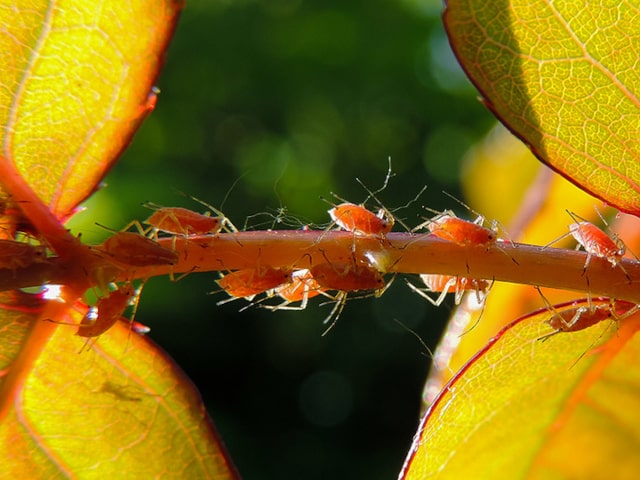
Pests are a common problem in any garden. All gardeners face this issue at least once, and many of them can't seem to get rid of pests no matter what they try. It's true that some gardens attract more pests than the others, but it's important to know that no matter how much your garden is affected, there is still a lot you can do to eliminate this problem.
What you need to remember that pest control is a chore of its own, and it demands time and effort. Not to mention that you should take some precautions. Natural pest control saves the environments as well as your plants, so you should definitely consider it. It brings numerous advantages to gardeners, but it also requires a bit more time and effort than simply pouring a commercial insecticide over your plants and hope for the best.
What is Natural Pest Control?
Defending your garden against pests can take many forms, and natural pest control is no different. The choice of methods and your success will largely depend on various factors, such as you location, plants you grow and crop varieties, climate conditions, time you have to dedicate, and more. Pest control requires a lot of time, patience, and a lot of trial and error. You need to be prepared for this so you can fight pests with success. Keep in mind that eliminating pests from your garden is a work of its own and you need to dedicate energy to it.
There are many pests you may face in your garden, from various bugs to slugs and birds. Any garden can provide a great place for numerous pests who want to eat your plants or hide under them.
The first instinct you might have when you discover pests in your garden might be to buy a first strong insecticide you can find and destroy the pests. However, these chemical-intensive measures are rarely a good way to go. You may try to destroy pests with all these herbicides and pesticides, but these chemicals will harm more than just pests: they will also kill many beneficial organisms that are helpful in your garden. Not to mention that these chemicals will harm your plants and endanger your family and pests. These products are also very harmful to the environment.
Another problem is that these pesticides, herbicides and other products are typically petroleum-based, which means they require a lot of resources to produce. It is another attack on the environment. Not to mention that you will need to use them over and over again in order to treat the problem. Typically, these chemicals need to be reapplied in order to combat the pests effectively. Some pests have even became "superpests", which means they have the ability to withstand a chemical dousing.
These are just some of the reasons why you should forget about chemicals and turn to natural pest control instead. Natural methods are effective and they keep your plants, family, pets and environment healthy. These methods also keep the beneficial organisms and animals you wish to have in your garden.
General Tips for Natural Pest Control
Here are some universal tips for those who wish to try safe, natural alternatives to chemical pest control.
First of all, you need to make sure that your plants are strong and healthy. You need to discourage pests from visiting your garden and attacking your plants. If your plants are strong and healthy, it will be more difficult for pests to attack them. In order to achieve this, cut all weak or infected plants. Make sure to dispose them somewhere away from the garden.
In order to improve your plant's health, use organic compost, mulch and natural fertilizers such as seaweed and animal manure. They all have trace elements such as zinc, calcium, sulfur, barium and magnesium. All these elements are vital for plant development. It's also important to note that these elements are also repellent for some insects, so it's another line of defense.
Another thing you should do is to clear leaf litter and weeds from your garden. This will eliminate many pest habitats. Spread clean mulch instead.
In order to prevent plant-specific infections, interplant with companion plants and rotate your crops each year. This will eliminate some of the most common problems.
You should also encourage beneficial insects in your garden. They will keep pest population low.
To avoid fungal and insect damage, always make sure to water early in the morning and not in the middle of the day.
Common Garden Pests
It's important to understand that pests largely vary from garden to garden. However, there are some very common pests you can find almost anywhere.
Here is the list of the most common pests and the most effective natural methods to get rid of them:
Here are some effective ways to combat common garden pests in a natural, non-invasive way.
Companion Planting
Many gardeners decide to employ the so-called "companion planting", which is a traditional Native American method of planting. Companion planting means using specific plants to go with your main plants. These companion plants are believed to help the main plants grow and protect them from pests and other problems.
This method also recommends planting the "Three sisters": corn, squash and beans together in organized rows in order to create a good habitat for beneficial insects. This can help a lot in eliminating the pest problems.
The opposite method, monocropping (planting just one crop at a time or separating crops by type), will create the opposite effect. It will create a good habitat for specific pests, which means you will need to use pesticides, insecticides and other products to try get rid of them. Companion planting, on the other hand, creates an interconnected, positive feedback loop system and it's highly recommended. For the best results, mic up your crops, fruits and vegetables with other herbs and flowers you will plant between your main plants.
Another strategy in companion planting is to incorporate plants with strong tastes and odors. These plants are offensive to pests and act as a good pest repellent. Plant them in your garden to force pests out.
In order to find the right companion plant, it's important to know what you're growing in your garden, as well as where you're growing it. Common companion herbs, flowers and vegetables are: mint, rue, clove, marigold, sweet basil, onion, nasturtium, radish and garlic.
Natural Pest Control Ideas
Here are a few effective methods and ideas on how to get rid of pests in your garden in a fully natural way:
- Handpicking. It may seem gross, but it is a very effective method of eliminating pests from your plants.
- Pheromones. These are natural scents that attract insects into sticky traps. They are useful for lining your perimeter.
- Floating Row Covers. These protective covers made of lightweight opaque material are draped over beds and anchored to the ground. They will allow sunlight and water in, but will keep pests out. The material used for the covers should be supple enough so it can grow with the plant and it's spun in order to prevent tearing.
- Cloche. These are miniature greenhouses and they are made to provide a great barrier for seedlings against pests. Keep in mind that they must be kept open in the heat and to allow watering.
- Barrier Paper. These are special scraps of waxed cardboard paper places at the base of the plant or over the stems and roots to protect them from pests.
- Pest Potions. These potions can be made using everyday household ingredients. These are homemade repellents you can use to deter pests from your plants. There are many natural homemade recipes you can try to make very effective repellents.
- Other methods: flypaper, traps, eggshell barriers, fences.
Organic Pesticides
There are numerous organic solutions and ingredients you can use to get rid of pests:
- Pyrethrins. They are derived from the dried, powdered heads of chrysanthemums flowers. They are very effective and can quickly target infestations. They will kill everything, even beneficial insects, so use them sparingly and only spot treat your plants.
- Diatomaceous earth. It kills pests by inflicting lacerations on their bodies, so pests dry out and die. You can use powder form of Diatomaceous earth on almost anything and it can be a great barrier to put around your house or garden. You may also put it around the plants.
- Boric acid. It is made from borate commonly known as Borax. It acts as a slow-acting stomach poison. It means that an infected pest will infect the whole colony, so it's a good way to get rid of many pests at once.
- Insecticidal soaps. Use vegetable-based, non-toxic soaps to kill pests. These soaps kill pests by breaking down their waxy cuticles and dissolving cell membranes. It is best used on soft-bodied pests, such as aphids, scales, catepillars, flies and grasshoppers.
- Horticultural oils. These oils plug spiracles, holes for respiration on the pests. If you want to use it, make sure to choose a vegetable-based oil to spray around your garden. You may choose between adormant oil which is heavier and should be sprayed when leaves have dropped, and summer oil, which can be safely used on foliage.
- Neem oil. It is derived from the seeds/fruits of the neem tree. These oils can kill pests like an insecticidal soap and horticulture oil, but can also work as an insect growth regulator and antifeedant on aphids, catepillars, grubs, beetles, and mites.
Non-Insect Control
There are many non-insect pests that can do a lot of damage in your garden, such as deer and various rodents. Squirrels tend to be very pesky so chances are that you want them to skip your garden. You can discourage these pests from your garden using a few handy tricks:
Deer can be controlled using hanging satchels of human hair. Hand them in the branches of trees, bushes, or around the garden. Another way to repel deer is to place bars of fragrant soap on branches. Hot sauce may also do the trick. Spray this mixture on the plants to deter deer.
Rodents are known to search for open food sources. To discourage them, make sure to seal your compost bins as well as trash bins. Rodents and rabbits are allergic to peppermint so you may deter them by soaking cotton balls or rags in peppermint and place them all around the garden. That should chase them away. Keep in mind that you need to reapply the peppermint oil after each rain.
Photo credit: Drriss & Marrionn
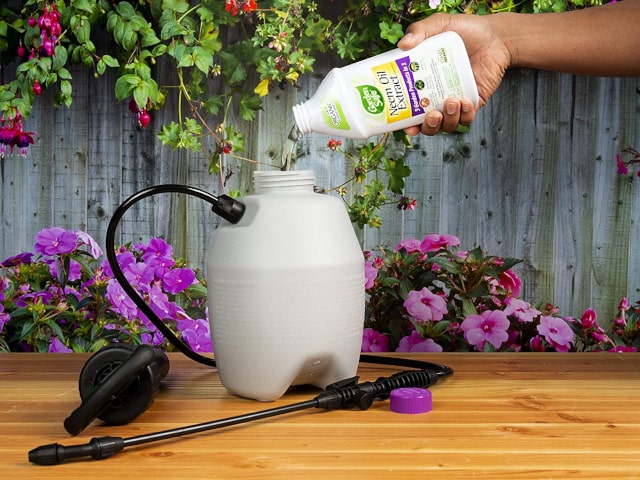
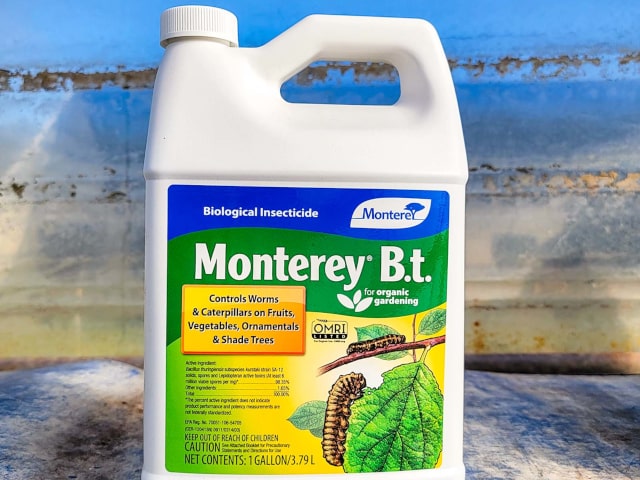
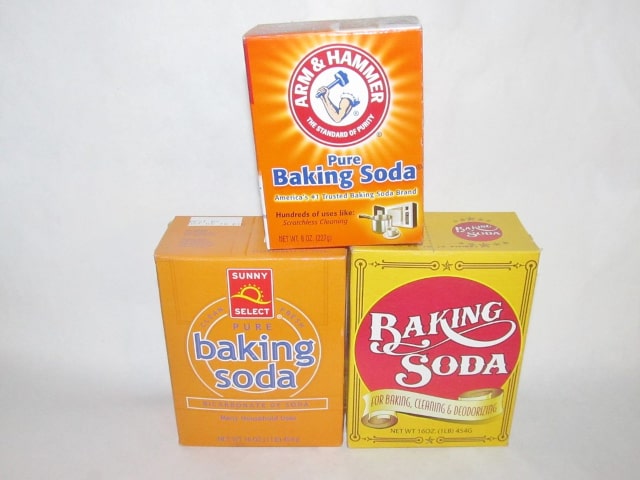
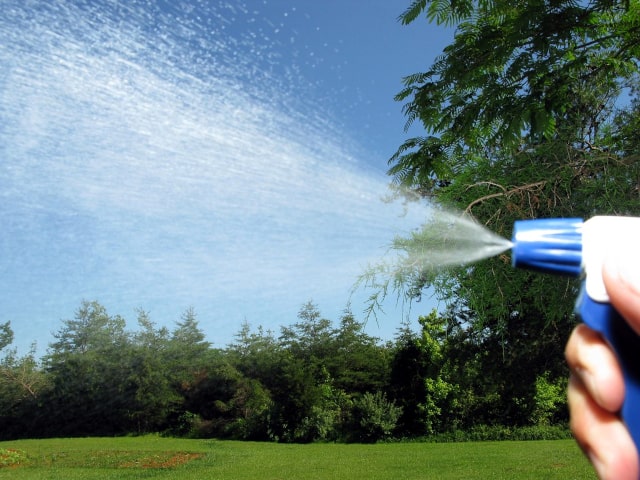
1 Comments
We have lost all our tomato plants in our greenhouse by that Asian Moth.